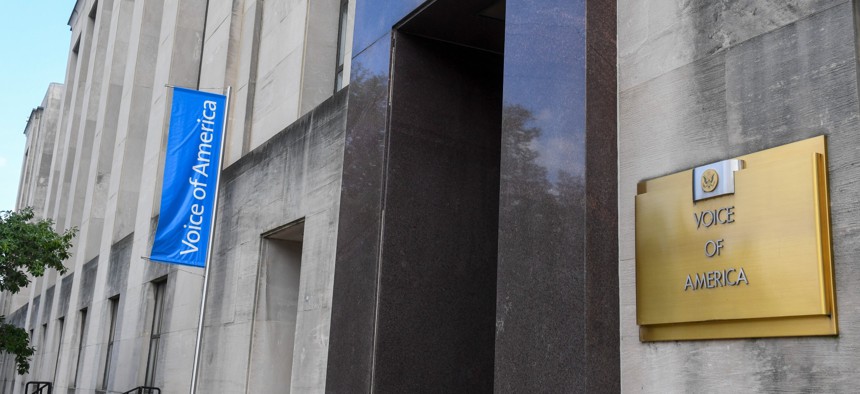A tribute to the Voice of America

Jonathan Newton /The Washington Post via Getty Images
Steve Kelman defends an American institution.
This blog is intended as a tribute to an iconic American institution, the Voice of America (VOA) radio station. It is occasioned by a remark at a hearing earlier this week by Sen. Jim Risch of Idaho, the senior Republican on the Senate Foreign Relations Committee, attacking VOA for broadcasting reports critical of things going on inside the US., such as income and racial inequities, "that could probably make people living under autocratic regimes feel that they are better off."
Voice of America was founded in 1942 to counter Nazi propaganda – the U.S. was the last major nation not to have a government broadcaster, because Americans have always been suspicious of government media. It received widespread praise during the Vietnam War and Watergate crises in the 1970s for its straight reporting on these emotional issues.
It is amazing to me that Sen. Risch doesn’t realize that it is just VOA’s ability to criticize the government or problems in our country that is so precious and amazing. I don’t want to endorse the conceit that "no other country but the U.S." would allow this. Government-owned TV stations in many countries in Europe – I have personal experience listening to the BBC and Swedish television – often run stories that criticize the government that owns them. Rather than framing this as the U.S. vs. the rest of world, I would frame this as democratic countries vs. dictatorships. The places where you would never see reporting like that which Sen. Risch criticizes are Russia and China. Can he possibly want us to follow their lead?
Few of us, including me, have ever ourselves heard VOA, because they are prohibited by statute from directing over-the-air broadcasts to the U.S., so they avoid being seen as an official US government news outlet. (VOA news is available online inside the U.S.)
A Chinese Ph.D student whom I have actually met only once but with whom I am in frequent contact about China, periodically sends me screenshots of stories from the Chinese-language edition of the Voice of America. He started following the station in 1989, the year of the Tiananmen massacre.
"This was the first time I got to hear news that was different from the Communist Party. Its news made me learn more facts and think more deeply," he wrote. His message is the best tribute to the VOA and the work they do.





